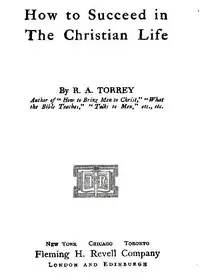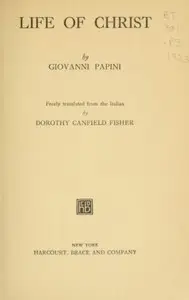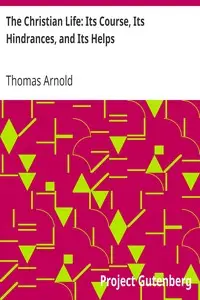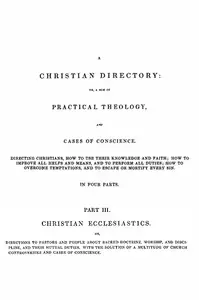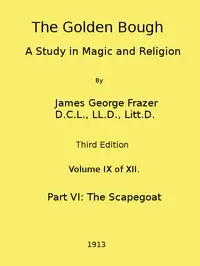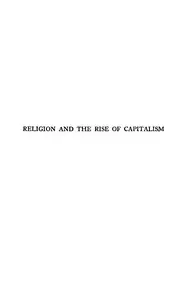"Christ: The Way, the Truth, and the Life" by John Brown is a spiritual explanation written by a man exiled, and it investigates how Jesus Christ is important to a believer's journey through life. The book focuses on Christ as the path, the truth, and the source of life, offering advice on how to use these ideas for spiritual improvement. The book starts with a thank you to Lady Strathnaver, showing how Christ is important for believers' spiritual well-being. The book then goes onto discuss the main ideas of the text, that it is important to understand Christ in order to avoid the trials that Christians will encounter. The author wants to address problems to Christian faith, and explain how followers of Christ can put His teachings into action in their lives.
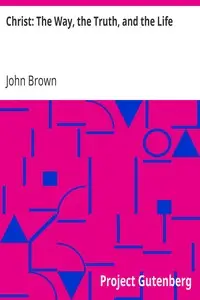
Christ: The Way, the Truth, and the Life
By John Brown
In a world of misleading ideas, discover how to live a Christian life by unlocking the secrets of Jesus Christ.
Summary
About the AuthorJohn Brown, of Wamphray, church leader, was probably born at Kirkcudbright; he graduated at the university of Edinburgh 24 July 1630. He was probably not settled till 1655, although he comes first into notice in some highly complimentary references to him in Samuel Rutherford's letters in 1637. In the year 1655 he was ordained minister of the parish of Wamphray in Annandale. For many years he seems to have been quietly engaged in his pastoral duties, in which he must have been very efficient, for his name still lives in the district in affectionate remembrance. After the restoration he was not only compelled by the acts of Parliament of 1662 to leave his charge, but he was one of a few ministers who were arrested and banished, owing to the ability and earnestness with which they had opposed the arbitrary conduct of the king in the affairs of the church. On 6 November 1662 he was sentenced to be kept a close prisoner in the Tolbooth of Edinburgh, his crime being that he had called some ministers ‘false knaves’ for keeping synod with the archbishop. The state of the prison causing his health to break down, he was banished 11 December from the king’s dominions, and ordered not to return on pain of death. He went to Holland. In 1676 Charles II urged the States-General to banish him from their country, a step which they refused to take. For a few years he was minister of the Scottish church in Rotterdam, and shortly before his death, which occurred in 1679, he took part in the ordination of Richard Cameron.
John Brown, of Wamphray, church leader, was probably born at Kirkcudbright; he graduated at the university of Edinburgh 24 July 1630. He was probably not settled till 1655, although he comes first into notice in some highly complimentary references to him in Samuel Rutherford's letters in 1637. In the year 1655 he was ordained minister of the parish of Wamphray in Annandale. For many years he seems to have been quietly engaged in his pastoral duties, in which he must have been very efficient, for his name still lives in the district in affectionate remembrance. After the restoration he was not only compelled by the acts of Parliament of 1662 to leave his charge, but he was one of a few ministers who were arrested and banished, owing to the ability and earnestness with which they had opposed the arbitrary conduct of the king in the affairs of the church. On 6 November 1662 he was sentenced to be kept a close prisoner in the Tolbooth of Edinburgh, his crime being that he had called some ministers ‘false knaves’ for keeping synod with the archbishop. The state of the prison causing his health to break down, he was banished 11 December from the king’s dominions, and ordered not to return on pain of death. He went to Holland. In 1676 Charles II urged the States-General to banish him from their country, a step which they refused to take. For a few years he was minister of the Scottish church in Rotterdam, and shortly before his death, which occurred in 1679, he took part in the ordination of Richard Cameron.

